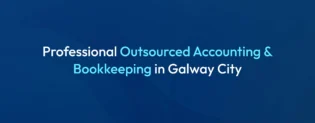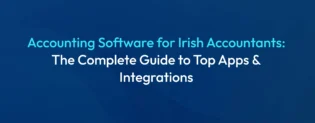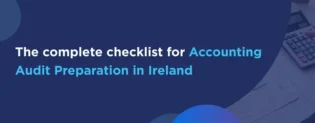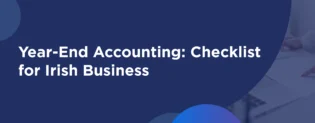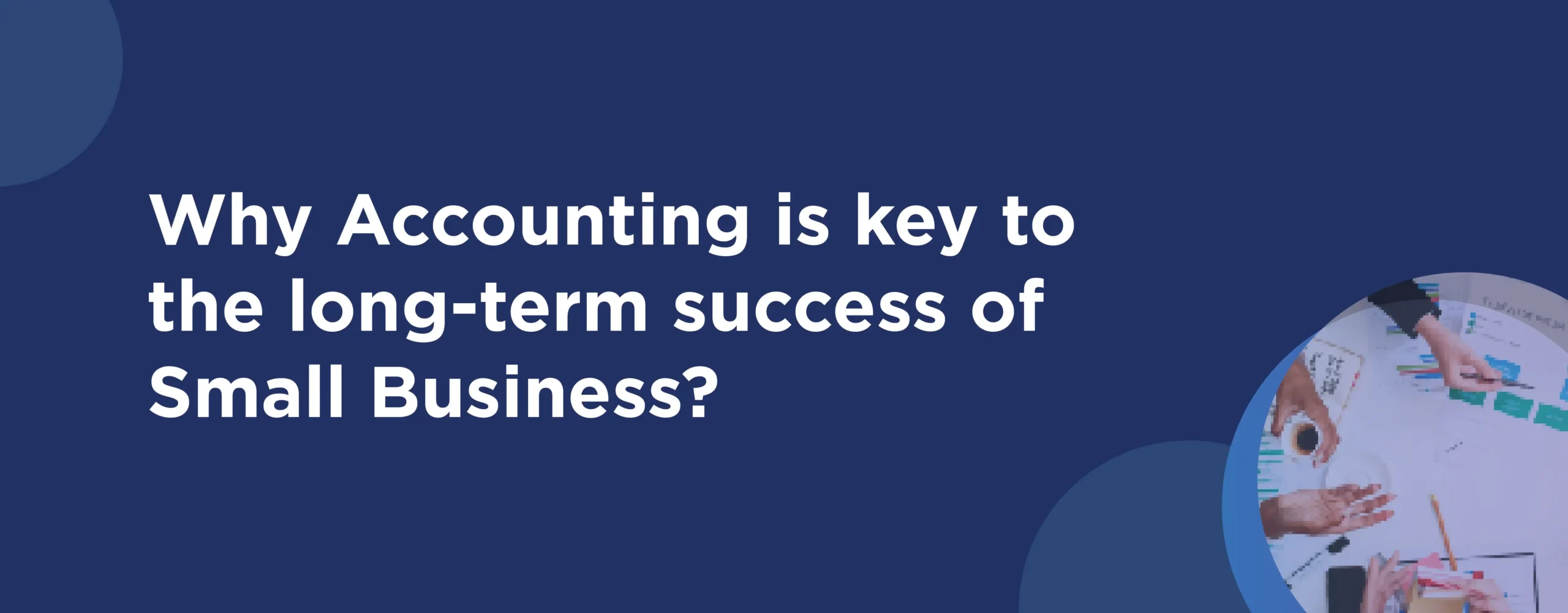
Managing finances is complex to small businesses in Ireland. Most of the Irish business owners face challenges in resolving the path of complications of financial management.
However, there is a clear way to stronger financial health, more stability and ultimately, greater profitability. In this guide we will show how to achieve this, focusing in effective accounting for small business.
To manage finances effectively is beyond maintaining books. It is about making smart decisions that help your business grow and stay strong.
As the European Commission Spring 2025 Economic Forecast predicts Ireland’s economy to grow by 3.4% in 2025 and 2.5% in 2026, solid financial practices are your business’s best asset.
Why proper Financial Management is important for your small Business?
Being good with money is the core of any successful small business. It helps you:
- When you see your money clearly, you can find ways to make better choices like to improve, spot good chances and avoid costly mistakes. This is the core benefit of good accounting for small business.
- Planning your money properly acts like a shield against sudden problems. It helps your business deal with economic changes.
- Banks and investors look for clear money records. This shows your business is stable and has good potential.
- Knowing where your money comes from and where it goes helps you avoid running out of cash and plan for future needs.
Also read: Accounting and Accounting rules in Ireland
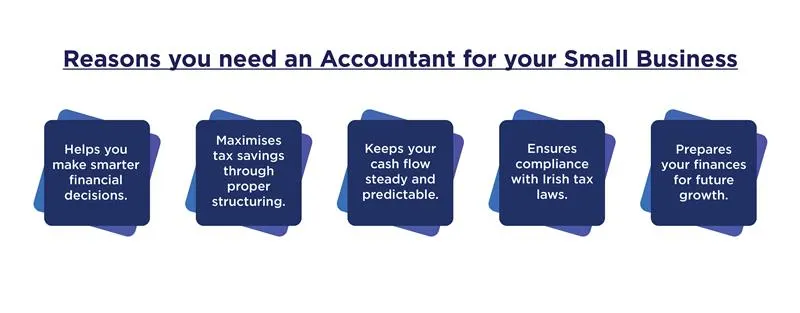
What are the ways for effective accounting for small business?
Here are basic money practices for Irish small businesses:
1. Never mix your Business or Personal money
This is the basic yet most important rule for business money. Mixing your personal and business accounts makes tracking income and expenses a nightmare.
As it complicates accurate financial tracking and tax compliance, which makes it difficult to assess the true performances of your business.
To avoid it you can open a bank account especially and solely for your business. Consider a separate savings account for you business needs, such as future investments or emergency funds.
2. Embrace Accounting Software
Switching from paper records to accounting software brings big benefits beyond just saving time. It helps avoid common mistakes and gives you an up-to-date view of your business’s finances.
For Irish SMEs dealing with rising costs and hiring challenges, this kind of insight makes it easier to adjust quickly and make confident choices. Using these tools isn’t just helpful it can set you apart from the competition.
Popular options in Ireland (2025)
| Software | Best for |
|---|---|
| Xero | Small to Medium-Sized Businesses |
| QuickBooks online | Flexible, cloud-based needs |
| Sage business cloud accounting | Scalable solutions for small businesses |
| FreshBooks | Service-based businesses |
| Zoho Books | Cost-conscious businesses |
It is important as automated accounting processes can significantly free up time for strategic financial planning for Irish SMEs.
Research from the Strategic Banking Corporation of Ireland (SBCI) highlights that rising input costs and difficulties in hiring skilled personnel are factors impacting SMEs, making efficiency gains crucial.
3. Closely track your income and expenses
Keeping track of every penny that comes in and goes out isn’t just about staying on top of your taxes. It helps you truly understand how your money moves.
When you write things down and sort them properly, you start to see patterns what’s earning well, what’s costing too much and where you might be able to cut back.
That kind of clear view helps you make smart choices, plan for cash flow and plan for growth or future investment.
This detailed tracking is fundamental for solid accounting for small business.
Also read: Accounting Standards in Ireland for Small Business
4. Create and follow a practical budget
A budget is your financial roadmap. It outlines expected income and how you intend to spend it. Having one helps you to spend wisely, avoid running out of cash and prepare for unexpected costs.
It keeps your business on track and helps you spot both limits and chances to grow.
How to approach it:
- Review old financial data to estimate future income and costs.
- Break down your budget into manageable categories (e.g., operations, marketing, payroll).
- Regularly compare your budget against actual performance and adjust as needed.
Effective budgeting can significantly enhance your business’s resilience, ensuring you can meet obligations even during leaner periods.
5. Understand key financial statements
Don’t let financial words confuse you. Once you know how to read your main money reports, you’ll get a clear view of how your business is really doing.
Together, these reports show where you stand and help you make solid decisions for the future.
- Income statement (Profit & Loss): Shows your revenues, costs and profit/loss over a period.
- Balance sheet: Provides a snapshot of your assets, liabilities and owner’s equity at a specific point in time.
- Cash flow statement: Tracks the business cash flow, categorised by operating, investing and financing activities.
Together, these reports help you understand your money, see what’s working and make better decisions.
6. Proactively manage cash flow
Cash flow is the lifeblood of your business. Monitoring it ensures you have enough ready cash to cover operational costs.
Key cash flow tactics:
- Send invoices immediately upon service or product delivery.
- Clearly state payment due dates on all invoices.
- Don’t hesitate to politely chase late payments.
- Explore longer payment terms with suppliers where possible.
- Aim to have at least three months of operating expenses in reserve.
7. Stay compliant with tax obligations
Irish tax laws change from time to time and they can be a bit tricky. When you stay updated and meet your deadlines, you don’t just avoid penalties you feel more in control.
Your financial planning gets easier and you can make use of any available tax breaks. It’s about keeping your business steady and well-prepared.
Key tax obligations for Irish Businesses (2025-2026):
- Corporation tax: Irish companies must file their corporation tax return (CT1) no later than the 23rd day of the ninth month after the end of the accounting period.
For example, for a year ending 31 December 2024, the 2024 CT1 filing and final payment is due by 23 September 2025. - VAT: Usually filed bi-monthly, with returns and payments due by the 23rd of the following month after the period ends.
VAT registration thresholds are increasing to €85,000 for goods and €42,500 for services from 1 January 2025, as confirmed by Citizens Information. - PAYE modernisation: Payroll submissions must be filed on or before every pay date, with monthly payments due by the 23rd of the following month.
8. Consider Outsourcing Bookkeeping and Accounting
If in-house financial tasks distract you from growing your business,
Outsourcing bookkeeping services for financial management offers ,multiple benefits.
It’s about strengthening your financial foundation and gaining clearer strategic insight.
Benefits of outsourcing services:
- Professional accountants keep your records clean and in line with Irish tax rules, which lowers your chances of being audited.
- They give you clear reports so you can really understand your money and make better choices.
- Their support grows with your business and offers flexibility you might not get from a regular in-house team.
- You get expert advice without the cost or commitment of hiring someone full-time.
- With the numbers handled, you can put your energy into running and growing your business.
Also read: How can Accounting services benefit Irish tech startups?
9. Build good money habits
Being consistent is truly important in managing finances. Regularly reviewing your money matters helps you quickly identify any issues and ensures you stay firmly on track towards your business goals.
Think of it as a routine check-up for your business’s financial well-being.
Suggested routines:
- Daily/Weekly: A quick check of money coming in and out. If your business has many daily transactions, quickly match them against bank records.
- Monthly: Conduct a detailed review of your profit and loss, balance sheet, and cash flow reports.
Make sure to pay all outstanding bills, send invoices and ensure all your accounts are reconciled. - Quarterly: Review your VAT returns, assess how your actual spending and income compare against your budget and plan for upcoming tax payments.
- Yearly: Prepare all necessary documents for year-end accounts, conduct a comprehensive review of your business’s financial performance and set fresh financial goals for the new year.
10. Prioritise ROI and cost management
Every expenditure should be viewed through the lens of Return on Investment (ROI).
Is it really helping you earn more or do things better? This isn’t just about cutting costs; it’s about making sure every expense brings real value back to your business.
By questioning each purchase, you stop money from just slipping away and instead direct it towards what truly makes your business stronger and more profitable. It helps you prevent waste and invest wisely.
Key questions to consider:
- Is this expense necessary for operations?
- What is the potential return from this investment?
- Can we achieve the same outcome more cost-effectively?
Conclusion
Getting your small business finances right in Ireland truly simplifies with a few steady, key actions. This guide has shown what you need to know about accounting for small business. By following these steps, you’re building a solid foundation.
This means greater stability and real chances for growth are directly ahead. You’ll gain peace of mind, knowing your business is in a strong position. Take charge of your numbers today.
Empower your business to truly prosper and expand for the future. For expert support on this important journey, consider reaching out to Outbooks.
Frequently Asked Questions (FAQs)
What’s the biggest money challenge for small businesses in Ireland?
How often should an Irish small business check its financial reports?
Do I really need separate bank accounts for my business and personal money in Ireland?
What are the main tax duties for a small business in Ireland?
How can I improve my cash flow when customers pay late?
Is financial forecasting important for an Irish small business?
When should a small business in Ireland think about getting an accountant or bookkeeper?
What’s the real difference between ‘profit’ and ‘cash flow’ for a business?
Accounting Popular Posts
- Simplify your Accounting and Bookkeeping needs with our Outsourcing Services
- The 5 Best Small Business Accountants in Ireland
- Online Accounting Services for Small Businesses
- A Guide to Select the Ideal Dublin Accountants for Accounting Firms
- How Can Businesses Benefit from Outsourced Accounting?
- Navigating Accounting in Ireland
- The Benefits of Outsourcing Accounting Services for Small Businesses
Parul is a content specialist with expertise in accounting and bookkeeping. Her writing covers a wide range of accounting topics such as payroll, financial reporting and more. Her content is well-researched and she has a strong understanding of accounting terms and industry-specific terminologies. As a subject matter expert, she simplifies complex concepts into clear, practical insights, helping businesses with accurate tips and solutions to make informed decisions.


